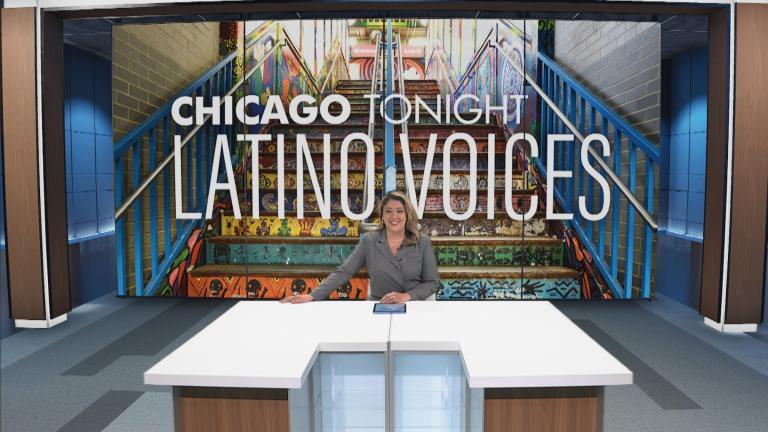Illinois’ insurance code prohibits discrimination, but state Rep. Will Guzzardi (D-Chicago) said there’s a difference between impact and intent.
Even if insurance agents aren’t doing it maliciously, Guzzardi said, algorithms end up perpetuating inequities and punishing people of color and low-income drivers.
“When you use factors like credit score, like employment history, like homeownership, like ZIP code, these factors are smuggling in histories of discrimination,” Guzzardi said. “Decades, centuries, legacies of discrimination. The insurance industry will tell you they can’t use race in setting rates, and that’s true — they can’t ask people their race, they can’t use race explicitly. But the factors bring in this legacy that affects drivers.”
Guzzardi is sponsor of a measure (House Bill 4767) to forbid insurers from using criteria including age, race, gender, ethnicity and immigration status.
The measure would also give the state department of insurance more authority to review how insurers use external data in their predictive models.
Illinois Secretary of State Alexi Giannoulias noted that drivers can be fined or have their licenses suspended if they’re found to be without car insurance.
“So it only stands to reason that if we require you to have auto insurance, then you shouldn’t have to jump through multiple hoops and face judgment based on a series of criteria that have absolutely no bearing on your ability to drive,” Giannoulias said.
Giannoulias, who also backs a similar measure sponsored by Democratic legislators (House Bill 4611), recently told the state House insurance committee that rates should be based only on factors related to driving, such as speeding tickets, accidents and DUIs.
Auto insurance experts testified that such limitations would come with other problems — opposite the objective sought by Guzzardi, Giannoulias, Illinois PIRG and other members of the Illinois Coalition for Fair Car Insurance Rates — and said that research and precedent in states like California back up their position.
For example, Bob Passmore of the American Property Casualty Insurance Association, said accidents can be matter of luck and that citations could be a factor of some neighborhoods having more police than others.
Passmore said before the ‘90s when insurers began including credit scores, “There was only a couple of buckets that you could fall into … the good business and the bad business.”
Those who didn’t have any tickets and hadn’t been in accidents were in one bucket; those who had were in the other.
“That means that we had a lot of people who couldn’t get insurance in the voluntary market, and they wound up in those assigned risk pools,” Passmore said. “Credit-based insurance scores were the first of the multi-variables that companies started to use to get more accurate rates. Once that happened it was sort of like the game-changer, the big bang. You were able to get more accurate pricing, so you had fewer of those people who had to resort to those very high assigned risk pools.”
He said going back to the “old days” would hurt consumers.
Eric Madiar, representing APCIA, said Illinois has 280 insurers, which makes for a “highly competitive, vibrant market” that gives consumers even with bad driving records options that could be taken away if Illinois increases regulation.
“Policyholders benefit from risk-based pricing, as insurers compete for business — we’ve heard already that you can shop around,” said Tony Cotto, director of auto and underwriting policy at the National Association of Mutual Insurance Companies. “Lower-risk policyholders are not subsidizing higher-risk policyholders. So more sound factors, more sound data, actually makes unfair discrimination against protected classes less likely.”
Accuracy shouldn’t come at the price of fairness, Guzzardi said.
State Rep. Lilian Jiménez (D-Chicago) said she was “disappointed” that the insurance industry was unwilling to sacrifice profits for equity.
“This is a prime example of how people who are already impoverished, who are already coming to the table with less advantages, are going to be heaped upon with additional disadvantages,” Jiménez said.
Jiménez said she comes from a working-class background and immigrant family, “where obtaining a credit score is not an easy thing. And obtaining and purchasing a house is not an easy thing. People work their entire lives to get to that point. So what I’m asking is: Why can’t we allow people to have an equitable start?”
Auto insurance has gotten more expensive, according to Lynne McChristian, the director of the Office of Risk Management and Insurance Research at the University of Illinois Urbana Champaign’s business school.
She said rates are up because the cost of insurance claims has risen as higher-tech cars cost more to fix.
“If the cost of those repairs keep coming up, cost of insurance goes up,” McChristian said. “So we’ve got almost 40% for motor vehicle parts, repairs are going up over 21%, and then used car values have gone up a lot in five years.”
Contact Amanda Vinicky: @AmandaVinicky | [email protected]








